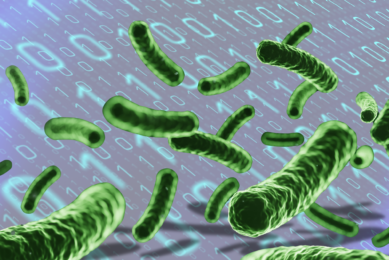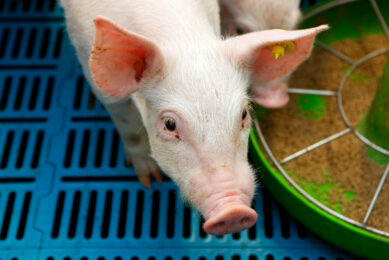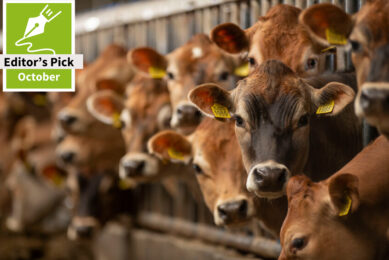Probiotics can impact stress and behaviour
International scientists gathered at Institut Rosell-Lallemand Scientific Exchange break new ground on probiotics research and pave the way for new applications.
More than 40 scientists and experts from different universities and research
centres across North America and Europe gathered last month in Quebec City,
Canada to participate in Institut Rosell-Lallemand’s Scientific
Exchange.
The meeting focused on the intricate and complex relationship
between the brain and the gut.
At a time when modern farming practices
represent an important source of stress factors for animals, affecting their
performance, health and well-being, some promising behavioural studies were
shared showing that probiotics can help to manage stress and influence
behaviour.
Brain, gut and bugs: a fascinating triangle
The idea
of a brain–gut axis is not a new concept, the first scientific studies of the
subject date back to the 1960s.
The fact that communication works both
ways and that the gut can talk to the brain is a more recent
concept.
Even more novel is the idea of looking at the role of the
intestinal microflora, or microbiota, with the addition of probiotics, in this
brain-gut cross-talk.
As explained by Professor Stephen Collins of
McMaster University Medical Centre (Canada): “The intestinal microbiota has
profound effects on host function and should be incorporated into a modern
conceptualization of the gut-brain axis.” He added: “In this model, changes in
brain responses, such as stress or anxiety, influence the physiology of the gut,
altering the habitat for the microbiota.
“The microbiota, in turn,
influences gut physiology and immunity at the gut mucosa level.”
In
recent years, scientists have also studied their interactions with the immune
system. With their action on the gut microflora balance, probiotics could also
affect the brain-gut axis.
Behaviour, stress and anxiety
For
animals raised with modern production methods, stress is a recurrent issue, and
probiotics are increasingly used as a natural solution to control pathogens
development or to optimize performance.
During the session dedicated to
monogastric animals Dr Nicola Walker (Lallemand, Montreal), demonstrated that
farrowing, an important stress event for sows and yet an extremely critical step
of its production cycle, induced a dramatic change in the sows digestive
microflora.
She explained that:” In our study, we showed that the normal
balance of the sow’s gut microflora was disturbed by farrowing.
“However,
when the sows had received probiotic yeast Saccharomyces boulardii I-1079
for three weeks prior to farrowing, their microflora was less affected by this
stress event, indicating a degree of stabilization.”
Didier Desor,
Professor of Behavioural and Cognitive Neurosciences at University Henri
Poincaré in Nancy (France), presented a pre-clinical study with a probiotic
preparation (Probio’Stick™ from Institut Rosell-Lallemand).
Using a mouse
model validated with Diazepam, it was shown that: “the probiotic was able to
reduce signs of anxiety, displaying an “anxiolytic-like” effect. Such effect had
not been previously described with probiotics.”











